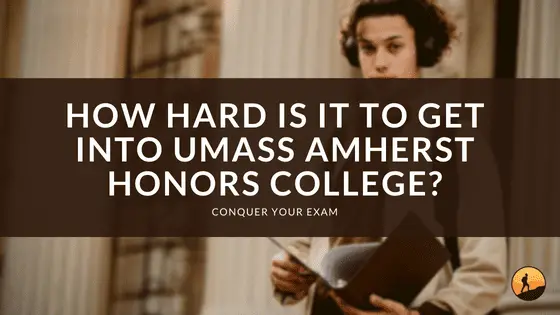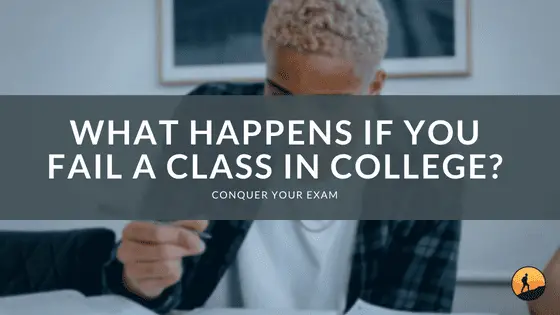Are you looking for alternative schools to send your child to and are curious about the benefits they pose? Are you concerned that your child’s needs aren’t being met from a typical public school? If either of these questions describes you, then you’ve come to the right place.
If your child has been struggling in a traditional educational environment, you are likely looking for an alternative school to be your solution, and that is possible. With this article, we will go in-depth into what types of alternative schools are available to you, the associated costs, and so much more.
No two children learn the same, and it is essential to provide your child with an education that works for them. Keep reading to find information on what alternative education is and how it may help you. What are you waiting for?
 What Does Alternative School Mean?
What Does Alternative School Mean?
Alternative school can mean different things for different people. An alternative school is intended to provide alternative education to traditional public schools. Often alternative school students have had trouble in their traditional school and, after a build-up of behavioral issues, have been moved to an alternative school.
Alternative schools have been around since the 1800s. They were meant to be alternate routes for individuals who declined to participate in the traditional school system. Many educators and students provided a sense of individuality that wasn’t readily accepted in conventional schools.
Alternative schools provide options for students who educators may categorize as “at-risk.” However, children in this category may not only possess behavioral issues. It may be something entirely different. Alternative students may be students who are also at risk of dropping out of school altogether because they feel alienated or cast to the side. Alternative schools may also boast a different atmosphere that may not be normal in traditional schools.
There are several reasons why a child might attend an alternative school. These include behavioral issues, safety issues, credit recovery, truancy, or even student parents. While these all may seem like negative reasons for a child to attend alternative, some may be seeking an environment outside of traditional school, looking for a challenge, or even searching for coursework that is more specialized to their needs.
Due to the various needs of the students, alternative schools may have a very different structure than traditional schools. Though some schools may stand alone, some public schools may be attached to or near a conventional school. This can be highly convenient for students who only attend alternative schools to make up credits or complete coursework they may have previously missed.
It’s important to remember that there is no one type of alternative school, but instead, there are several.
What are the Types of Alternative School?
Though the concept of alternative schools has been around for quite some time, more recently, we see the various schools which have developed. Depending on the nature of your child’s needs, an alternative school may be different for everyone. Some students may be looking for a behavior-based option, while others may be looking for schools that center around college prep or vocational skills. No two schools in this list are structured the same, and they all offer their own set of pros and cons.
Though at one time the term “alternative school” referred to schools for ad risk students, this term has now expanded to include a multitude of other types. Different types of alternative schools include the following:
Alternative Schools
Alternative schools were initially established to help at-risk children. These schools were seen as a means to get “troublemakers” out of traditional schools and potentially help them overcome their behavioral problems and learn. It is the hope that these students will reform and be sent back to conventional schools. Though that is the goal, it is not always the outcome. Students who have been expelled, received numerous suspensions, or violated truancy policies can be found in traditional alternative schools.
Charter Schools
Charter schools are another alternative to traditional schools. They often provide students with more flexibility outside of a standard school structure. This may mean teaching methods or even scheduling may be different from a regular school. Charter schools also receive their name because they operate under a charter.
There are several reasons why a parent may choose a charter school, with the most prevalent being access to quality education. Charter schools often have higher academic thresholds for students to reach to continue their operation. Charter schools often boast smaller class sizes, a feeling of a community, more centralized focus, and even more individualized assistance. Due to the smaller size of charter schools, students can receive more aid and attention from teachers and staff.
Magnet Schools
Magnet schools are another alternative option for students. Magnet schools often offer specialized curriculum and have more strict alternative school requirements for acceptance. Like charter schools, magnet schools are generally smaller, and students can receive more attention from teachers and staff.
Students attending magnet schools can often handle a more rigorous curriculum as they are based more on interest than necessity. Magnet schools operate outside of traditional school boundaries yet remain part of the public school system.
Though magnet schools may have a centralized focus, magnet schools still educate students with traditional courses in mind but in their own way. Specific areas of interest for magnet schools include college preparation, sciences, or even the arts. Magnet schools often attract an abundance of different students from varying neighborhoods and walks of life.
We compare Charter School vs. Magnet School here.
Vocational Schools
Vocational schools are another sought-after alternative to traditional schools. They work to prepare students for the workforce and overall more successful life. In vocational schools, students can gain more hands-on experience. They are trained in a specific track like healthcare, technology, mechanics, or various others.
Often students are allowed to select the track they are most interested in or the school specializing in their desired career field. Vocational schools will often prepare students for college and, more importantly, the workforce. High schools will often include traditional courses needed for graduation in addition to a more specialized set of courses in relation to the chosen vocation.
There are various options for vocational schools and programs. These can include three different types of schools. The first option is a freestanding vocational school. These are separate from traditional schools as they have their own campus and building. The last two options operate in tandem with conventional schools. These options include having a vocational wing of the school explicitly designated for vocational education and course and a model where students attend traditional school in the morning and are transported to a separate school for the remainder of the day.
Middle Colleges
Another alternative option for schooling is middle colleges. Middle colleges are continuously becoming increasingly popular for high school students. Middle schools operate in conjunction with colleges and often take place on college campuses. They allow students to experience a college atmosphere while not only gaining high school credit but, at times, college credit as well. This will enable them to receive their high school diploma and get a head start on college.
Home School
Homeschooling has seen dynamic growth in recent years. Parents teach most homeschooling, or parents can purchase a homeschooling curriculum or course online for their children to partake in. This allows parents to create specialized curriculum for their students while having the flexibility of structure, curriculum, and scheduling.
What Makes a Good Alternative School?
Several different qualities make a school suitable. These qualities may vary by the type of school that you are looking for regarding your child. Knowing and understanding your school’s structure is vital in determining if it is a good school in general and for your child’s specific needs.
Many alternative schools catch a bad wrap; however, some work to ensure that they create a desirable environment for not only students but also parents. There are several ways to spot to determine if an alternative school is a good program or not; these characteristics include the following:
High college acceptance rates
One way to determine if an alternative program is successful is to look at the program’s statistics. This includes things like graduation rate, the rate of students who attend a two-year college, and the rate of students who attend a two-year college.
Experienced teaching staff
Because students can get more individualized aid in alternative schools, teachers must be knowledgeable and have adequate resources. Teachers have the power to make or break a student’s attitude and performance. Therefore, teachers must be knowledgeable and have sufficient professional experience, and be emotionally available for students. Though students are not counselors or therapists, they are likely able to offer support to students since they work with them in such a close capacity.
Standardized test scores can compare to traditional schools.
Another excellent way to tell if a school is a viable option is to determine how their test scores stack up against traditional schools. Schools whose scores are able to meet or even exceed traditional schools are ideal. If the alternative school you are looking at consistently boasts scores that are lower than your public-school option, it may be time to find an alternative to your selected alternative school.
How Much Does Alternative Schools Cost?
The cost of alternative schools can drastically vary. Some schools may be an extension of a nearby public school, making them free. Price is dependent upon the type of alternative school that you are considering. There are several free options for vocational, magnet, and traditional alternative schools; however, as you begin to look into private or more specialized options, these schools may have come with a cost. Private schools and even boarding school prices may vary. However, the average cost of private schools currently stands at roughly 12,000.
Many magnet and charter schools will have additional admissions requirements but will not cause parents to incur an extra cost. However, amenities like transportation may cost extra. Parents may find that boarding school prices are far higher than traditional schools as they also offer residency for students throughout the school year, putting them on the higher end of the budget spectrum.
Traditional School vs. Alternative School: What’s the Difference?
Though similar in nature, traditional schools and alternative schools can be very different. These differences can include alternative schooling methods and potentially differences in schedule. The following differences may be common between alternative and traditional schools:
- More individual aid for students
- Emotional and social support
- Creative teaching methods
- Smaller course sizes
- Flexible graduation requirements
- More extracurricular activities
- Competitive admissions
What are the Pros and Cons of Alternative Schools?
There are several pros and cons to attending an alternative school, depending on the type of school you are attending.
Pros to Attending Alternative School
- Creative learning styles – Frequently, teachers shave more flexibility when planning their lessons and lectures. Students in alternative schools often have different learning styles that allow teachers to be creative when planning their lessons. Smaller class sizes also enable teachers to do more hands-on activities with students that they may typically not have the opportunity to try in traditional schools.
- Specialized Instruction – Oftentimes students decide to attend an alternative school themselves. When attending schools like vocational schools or magnet schools, students can take a more active approach to their education and focus on something they are passionate about.
- Smaller class sizes – Smaller class sizes are a significant advantage for students who do not thrive in large environments. They allow students to receive more attention and ultimately cultivate better relationships with faculty and teachers.
Cons to Attending Alternative School
- Getting into college may be more challenging – Depending on the type of alternative school you are attending, this may pose an issue when thinking about attending college. Some alternative schools do not offer all the courses that would typically be present on a traditional high school transcript. This is one reason why it is vital to check the curriculum offerings for a potential alternative to determine if other courses may be needed after graduation.
- Negative reputations – Many alternative schools have a negative reputation. Though there are several different types, individuals often think about students with behavioral issues when mentioning the term “alternative school,” individuals think about students with behavioral issues. It is unfair to label all students when some may genuinely need individual assistance because they cannot learn or thrive in a traditional classroom setting. This is one of the significant disadvantages of alternative schools.
Wrapping Things Up: What is an Alternative School?
Ultimately alternative schools are schooling options that exist outside of traditional public schools. Though they have a reputation for being for “at-risk” children, that is not always the case. There are several different types of alternatives schools that offer something for not only the “at-risk” student but the student who is interested in challenging themselves, following a specialized track, and even going away to boarding school. Options for alternative schools may include magnet schools, charter schools, and even boarding schools.
There are several ways for students and parents to determine if an alternative school is a quality option. One way to do so is by checking the statistics for a selected school and comparing them to the traditional school that your child would likely attend if they were attending public school. This can let parents know if the school will provide a quality education for their child.
There are several reasons why alternative school should be an option that you consider for your child. It is crucial to eliminate the idea that alternative schools are only for troubled youth and embrace the individuality that other school types may offer.

 What Does Alternative School Mean?
What Does Alternative School Mean?







